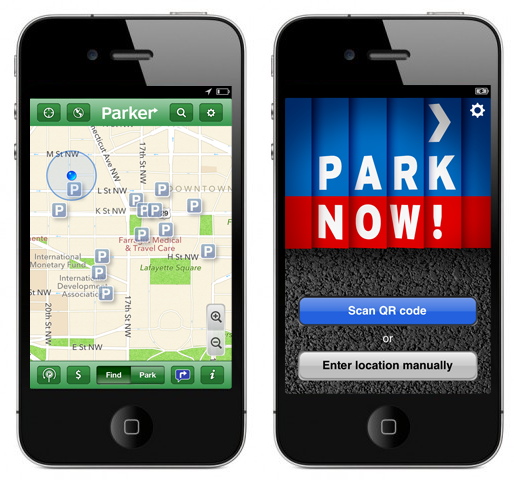How Mobile Apps Are Revolutionizing Parking
Did you know that parking is a $25 billion a year business? It’s also a pain. If you live in a city, you can sympathize. Street parking is limited, and garages are expensive. Throw traffic into the mix and you have one giant headache. But there is hope for smartphone users. Several apps have appeared on the market that make finding parking — and paying for it — much easier. The results are positive and the technology is promising. Could we be near the end of parking struggles?
Parking That Hits the Spot
It takes two to tango when it comes to parking apps. First, a company needs to build an infrastructure to pull parking data and deliver it to mobile devices. Next, a city needs to commit to a partnership.
Streetline, a creator of parking solutions, presents a compelling case for making our cities “smarter” with parking technology:
Experts estimate that 30% of urban traffic is caused by motorists looking for parking. Additionally, vehicle emissions and drivers looking for parking are so closely linked that a yearlong study found that drivers in a fifteen block district in Los Angeles drove in excess of 950,000 miles searching for a space and produced 730 tons of carbon dioxide. By connecting the real world with critical information, Streetline is revolutionizing the way we live and work, while making cities more efficient and lessening their environmental impact.
Recently named one of the 10 most innovative companies in transportation by Fast Company, Streetline installs sensors on parking spots that detect whether or not a car is in a spot. The installation comes at a low cost to cities and allows municipalities the ability to track expired meters. Some of the most congested cities in America, including New York City, Washington, D.C., Los Angeles, Philadelphia, Chicago and Boston, are using the Streetline system.

Going Quarterless
Most people don’t carry enough quarters to pay for a day of parking, which is why ParkMobile has found success since its launch in 2000. Parking meters are matched with a numeric code and a QR code. Once drivers create an account that is linked with a credit card, they pay for parking by calling or texting the number on the meter or scanning a QR code with their smartphone. This service, too, has received rave reviews from both cities and citizens:
"We will look back at this time and the flowering of technology as one that transformed parking," says Donald Shoup, a UCLA professor who studies parking and transportation. "The closest comparison would be the invention of the cash register in the 19th century, which totally transformed commerce."
There are now several big players vying for the opportunity to help drivers park and cities ease congestion. Just a few years ago, we were excited about solar-powered parking meters; now, they may face extinction. Parking is just one element of a smart city, but the progress is encouraging. What will be the next area of transportation to be overhauled?








